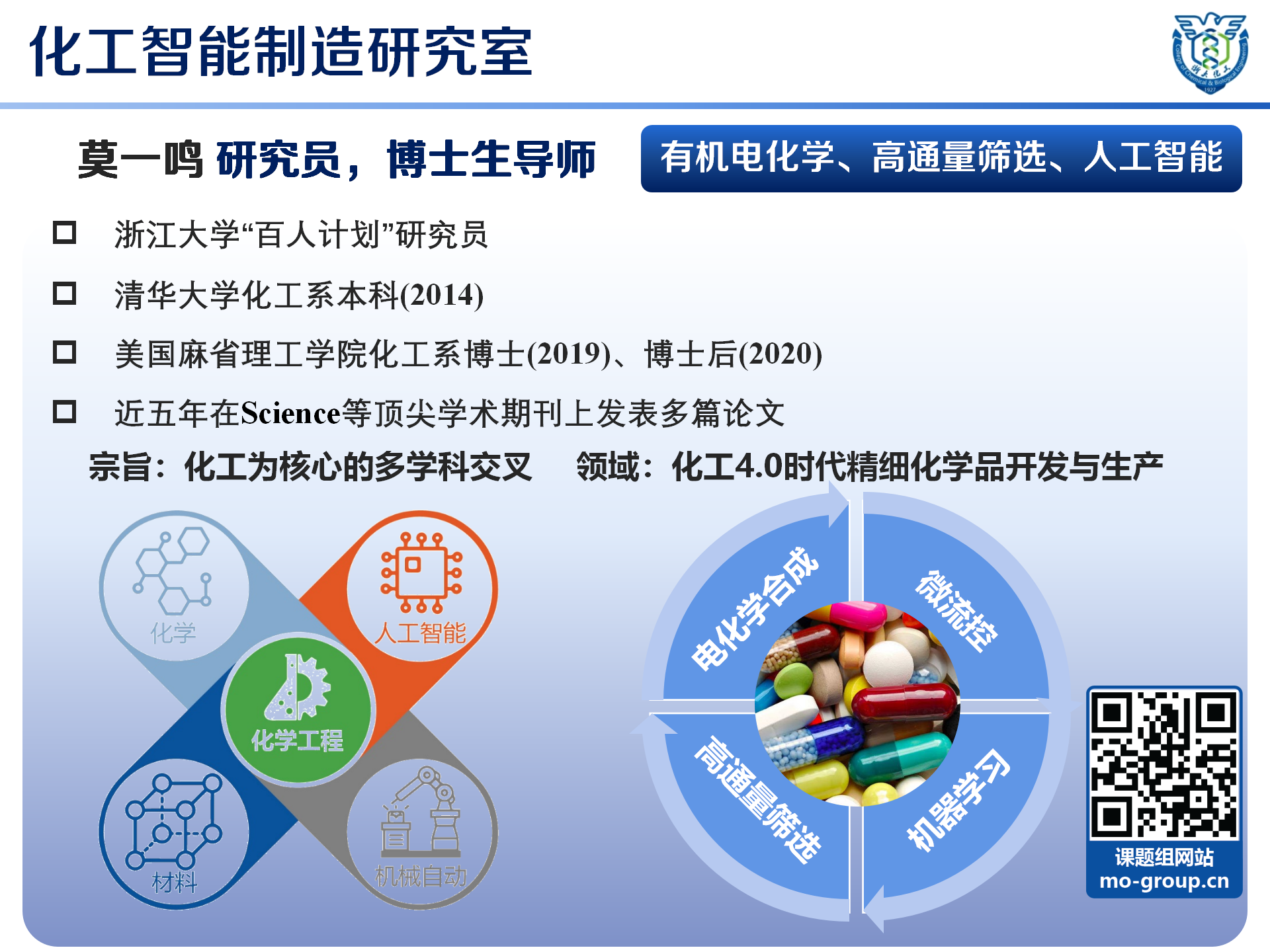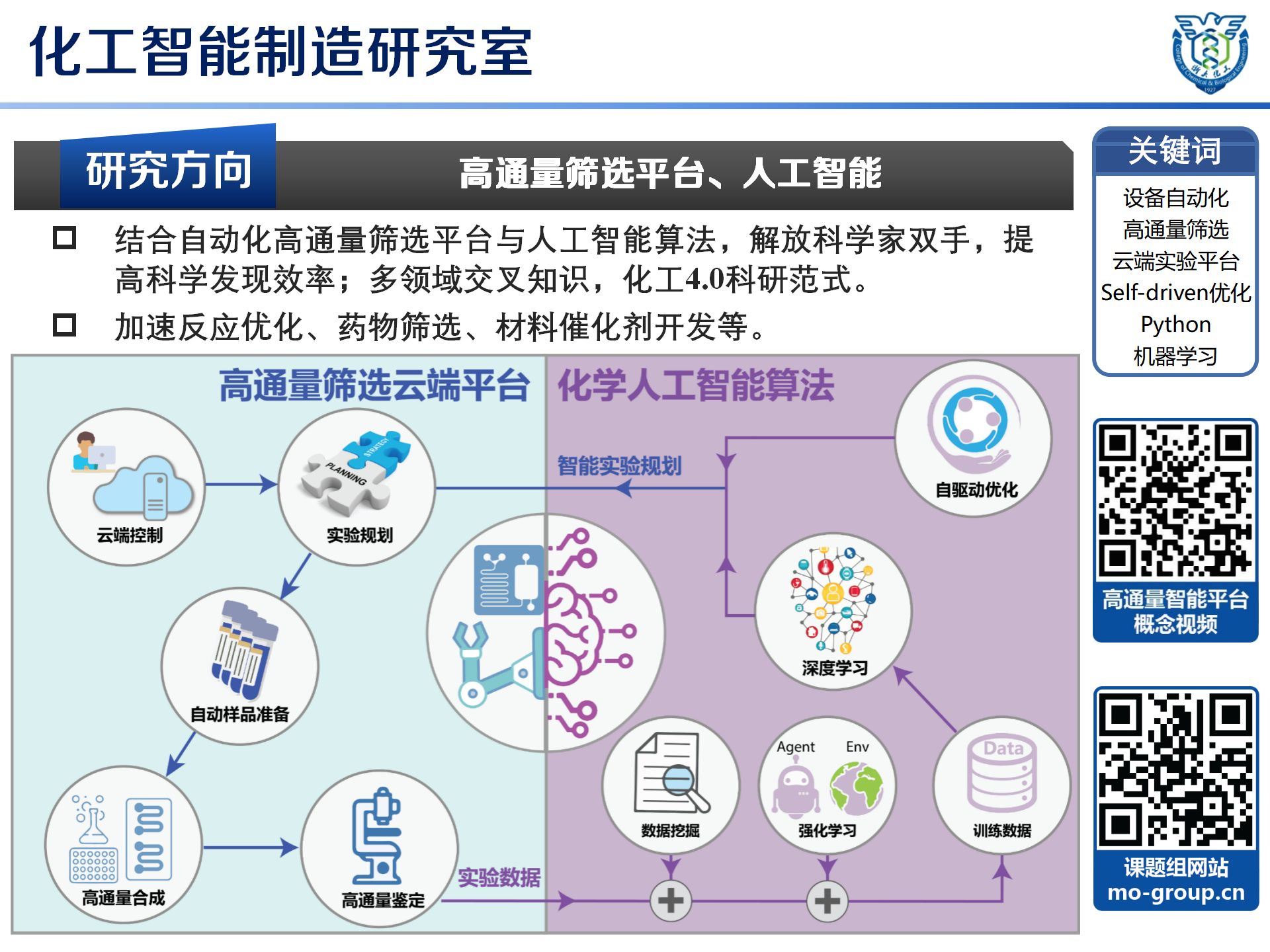莫一鸣研究员:
电化学有机合成:精细化学品与医药中间体
Electroorganic synthesis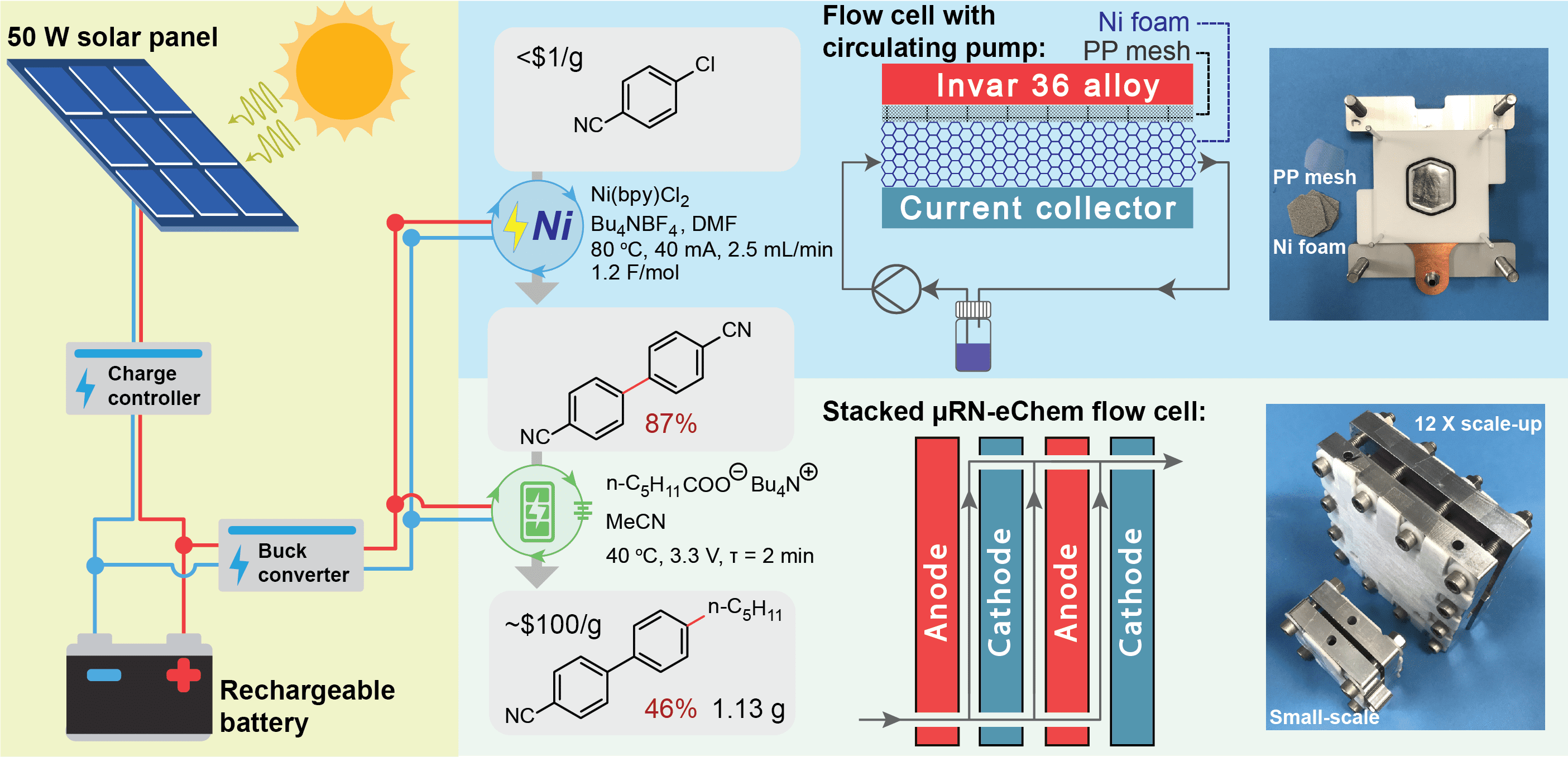

高污染、高能耗、高危险已经成为大众心中对化工生产过程的第一印象,本课题组利用电化学的方式取代传统方法中的氧化还原剂,促使反应在温和的条件下进行,从而实现有机合成生产绿色化、安全化、和可持续化。针对高附加值的精细化学品与医药中间体,融合工程设计与机理开发的手段,精准控制非均相体系里活性中间体的反应特性,有针对性地设计电化学反应器控制局部反应和传递,从而利用可再生的电能驱动有机合成,实现化学生产方式的变革。
Organic electrochemistry has emerged as an environmentally friendly, atom-economic, and sustainable alternative to traditional synthetic methods due to the use of the redox power from clean electrons in place of the stoichiometric amount of oxidants or reductants. The opportunities where electroorganic chemistry can be utilized exist in manufacturing pharmaceutical ingredients, fine chemicals, and commodity chemicals. Our group deploys the knowledge of the reactor and material engineering and chemistry design to solve fundamental challenges in this heterogeneous system in order to make this technique increasingly powerful accessing complex molecular structures with the following two advantages:
(1) Cost-effective. The low cost of the electrochemical synthesis process makes generic drugs or fine chemicals become even more affordable.
(2) Green chemistry. The manufacturing of fine chemicals causes extensive environmental issues. However, electrochemical processes can potentially reduce the usage of toxic and dangerous substrates流动化学与微流控
Flow chemistry and microfluidics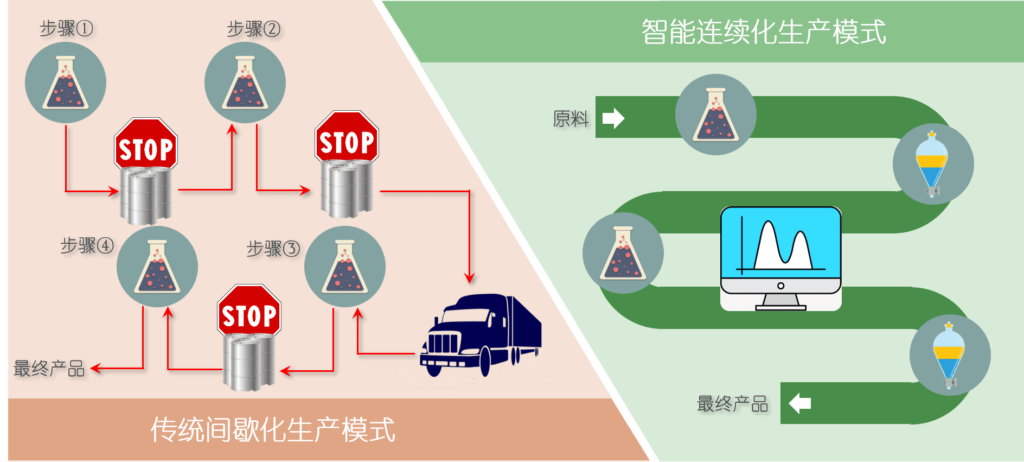
传统医药与精细化学品的生产依赖于间歇式搅拌釜式的反应流程,存在着生产效率低、危险系数高、自动化程度低、生产调度不灵活等潜在问题,本课题组利用微流控与流动化学的技术实现传统生产的连续化,从而扩大可用反应类型、增强反应安全性、提高流程自动化程度、降低工厂占地面积。从新型反应器的设计与多步反应与后处理流程集成化的角度出发,主要专注于以下两个方向(1)开发使能型微流控反应器:实现在传统反应器中具有挑战性的反应体系可以安全高效的被利用在合成过程中;(2)集成化移动工厂:目前化工生产依然是重资产、难以变化的生产车间,这样特点在快速波动的化学品市场中,无法实现产能的最优配置。利用模块化的微流控反应器,实现即插即用(plug-and-play)的集装箱式工厂设计,随时替换模块功能与生产地点,从而实现产能与生产地点的最优配置,实现化工行业生产变革。
Over the past decade, continuous flow technology has emerged as a powerful tool to produce active pharmaceutical ingredients (APIs) driven by advantages of continuous technology over the conventional batch or semi-batch processes. This research focuses on developing enabling technologies to facilitate efficient, safe, and green continuous manufacturing of pharmaceuticals. Our group will focus on two aspects aiming at revolutionizing the manufacturing of the pharmaceuticals and fine chemicals: (1) Developing innovative microfluidic flow reactors enabling chemistries that are either challenging or even impossible using a batch reactor; (2) Developing a mobile plant by integrating flow chemistry technologies to make the whole plant fit into a standardized container size. The modular design allows plug-and-play swap of reaction and work-up modules to give great flexibility in manufacturing capabilities.
无人高通量筛选体系的构建与人工智能
Autonomous high-throughput screening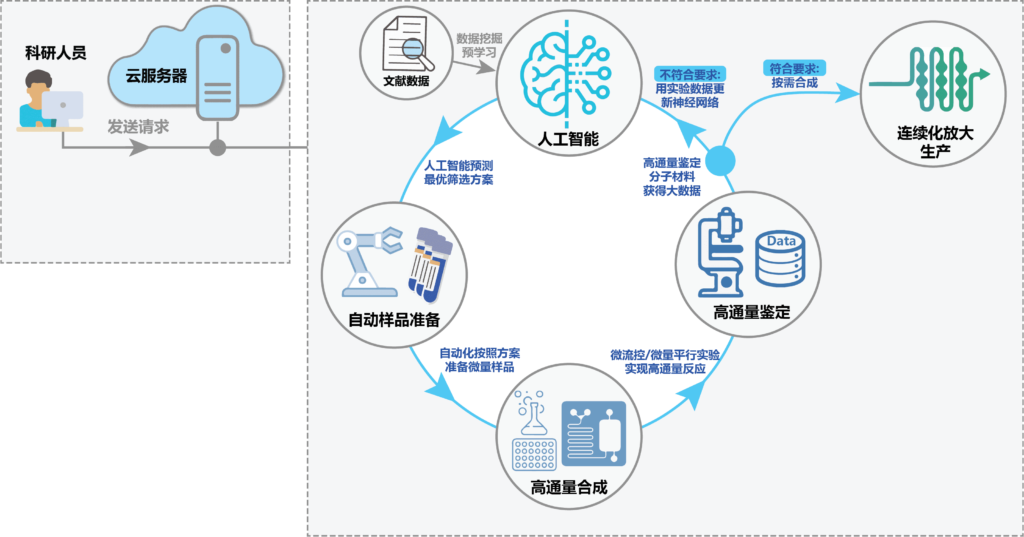
随着人们对于分子与材料的功能要求越来越细节化、专业化,我们面临前所未有的开发新型分子材料的挑战,目前这种主要依赖科学家手段设计与实验的科研方式,导致了各个领域缓慢的线性发展。比如一个新型小分子药从最初开发到上市平均需要26亿美元的资金与10年的时间。在浩瀚的分子结构与材料组合的空间里,如何快速而精准地找到合适的结构或者构成,是人类未来能否实现跳跃式进步的关键。
本课题组一方面利用自动化高通量筛选技术,实现超人类的实验速度,以最少的物质消耗、最短的时间,获得更多的反应机理、物质性质、分子活性等方面的信息,从而快速找到最优解决方案;另一方面,依赖于高通量平台产生的高质量数据,利用人工智能算法学习人类难以发现的潜在规律,构建电脑化学家,从而避免穷举式的科研,实现分子材料的智能设计。最终融合自动化高通量筛选与人工智能,形成闭合回路,实现无人化自驱动的分子材料开发平台。
The speed of research and discovery is the key to success for modern science and technologies. For example, each new drug costs 2.6 billion dollars and 10 years on average before becoming commercially available. To go beyond the bottle of human imposed limitation of discovery, using the high-throughput experimentation techniques is the only avenue to greatly expand our capability to explore the parameter space for each field. At the same time, harnessing the power of artificial intelligence to plan the experimental design and search trajectory smartly in the unknown space can greatly reduce the unnecessary exploration of parameter combinations that are sure to be unfavored based on currently available data. Our group will focus on integrating high-throughput experimentation and machine learning to form a self-driven closed-loop automated discovery procedure to revolutionize the current research scheme.
